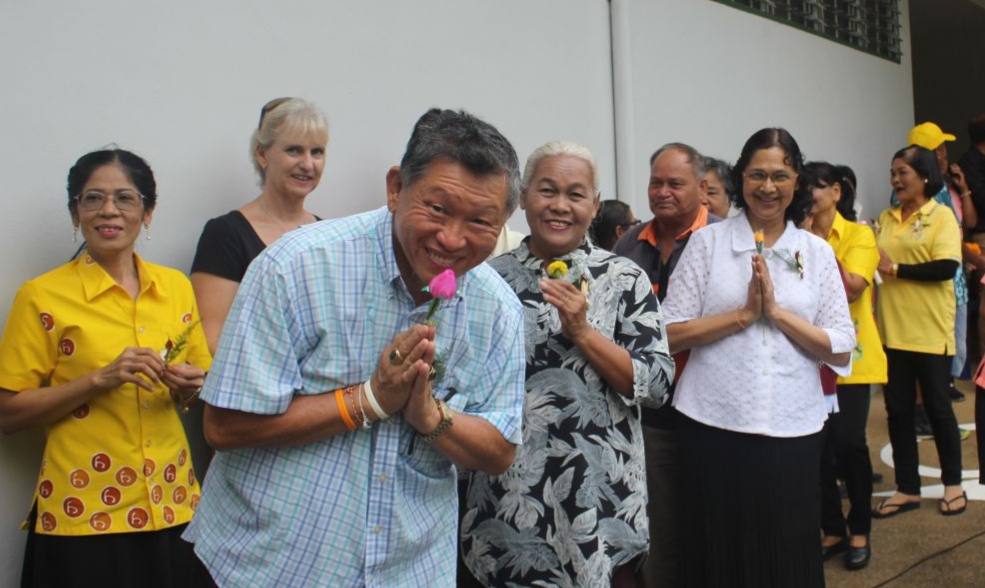
In Thailand the word we use to say hello is Sawasdee, however with this word comes an action of the wai. The hands are placed palm against palm in a prayer like position and then raised toward the face while the head does a slight bow. The higher the hands are raised and the lower the bow the more honour is given to the recipient. It has its origins in India apparently with the original meaning I see the holy within you.
However, the meaning of the “wai” in Thailand has no religious meaning, it is an action used to express honour to the other person in greeting, as well as to express gratitude or to apologise.
The etiquette associated with the wai is that the person with the lesser social standing wai’s first ie. the younger person wai’s the older person, the person with the lesser rank in society for example lower academic qualification or lower position in a company will wai the senior managers.
How do we as Christian missionaries respond to this context ie. that in Thai culture we have been bestowed a very high status, because we are seen as being very well educated, financially wealthy and at times we are given status merely because we are foreigners. The challenge is that the person who feels that they have a lower status than the missionary will not feel comfortable to approach the missionary and if engaged in a conversation will feel that they need to respond in a way that will please you.
For the Christian we know that we are made in the image of God. In God’s eyes all people are equal in status for there is no Jew or Gentile, slave or free. The Bible also teaches us that Jesus humbled himself and came from heaven to earth so that he could die for our sins on a cross. Jesus showed us how to humble ourselves when he took off his outer garment and washed his disciple’s feet. Paul taught us that we need to become all things to all people so that they may have an opportunity to hear the Gospel.
This means that despite being given a high status in society, we need to constantly find ways to be counter cultural, learning to serve people. For example: washing the dishes after lunch at church. When a child wai’s an adult, the adult needs to be able to kneel down and talk to the child face to face and at times be willing to play games with the children. At the heart of humility is to be vulnerable, to be available and always willing to serve.


